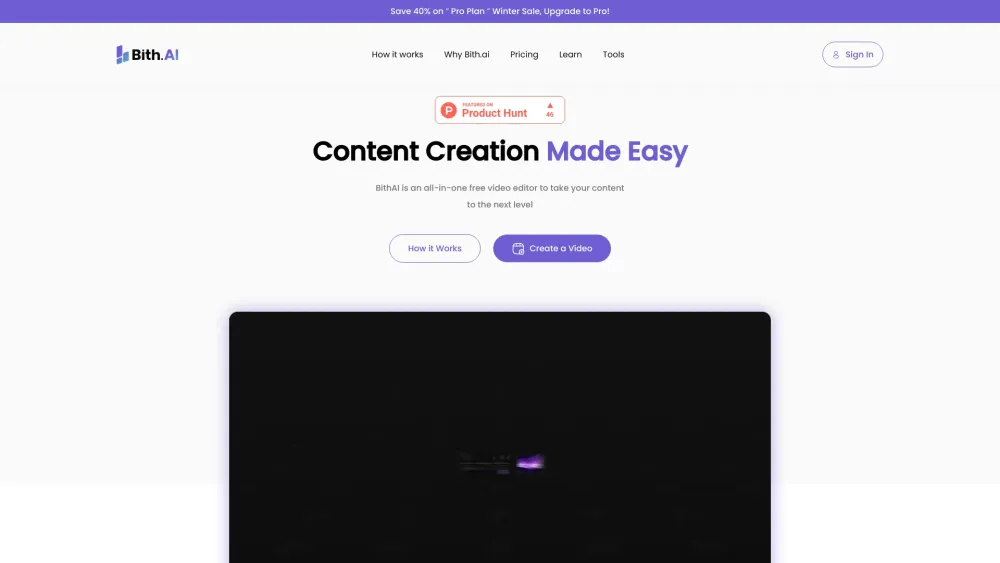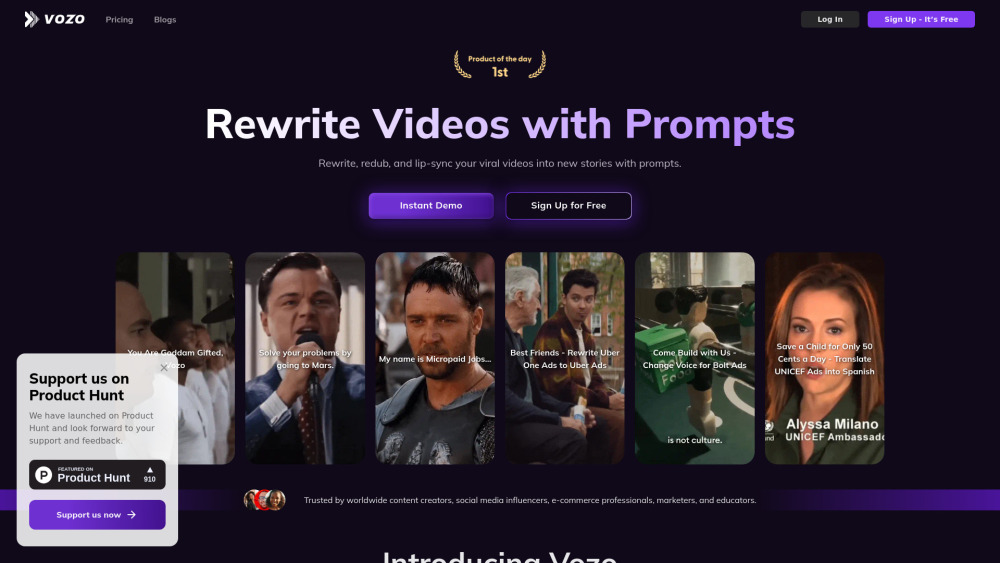OpenAI Postpones Launch of New ChatGPT Voice Mode by Over One Month
Most people like

Introducing the Text-to-Video AI Generator: Your Ultimate Tool for Faceless Creators
Unlock your creativity with our innovative Text-to-Video AI Generator, specifically designed for faceless content creators. Transform your written ideas into engaging videos effortlessly, enhancing your storytelling and outreach. Tailored for those who prefer privacy while still making a powerful impact, our user-friendly platform combines advanced technology with creativity, allowing you to captivate audiences without appearing on screen. Discover the future of content creation where your words come alive visually!

Discover the exciting world of AI conversational toys that engage and entertain children and adults alike. These innovative toys blend technology with play, fostering creativity and learning through interactive dialogue. Whether you're seeking a gift or a new way to stimulate imaginative play, these AI-powered companions provide endless fun and educational benefits for everyone. Explore how these toys can enhance communication skills and promote social interaction in a unique and enjoyable way.

Revolutionize your study sessions with our AI tutor, designed for instant homework assistance. Get accurate answers, clarifications, and guidance on your assignments, making learning more efficient and engaging. Whether you're tackling complex math problems or researching science topics, our AI tutor is here to support you every step of the way. Experience the future of education with instant help at your fingertips.

Unlock the potential of your video content with an AI video generator that simplifies and enhances the video transformation process. Whether you're looking to create engaging marketing materials, dynamic social media clips, or captivating educational videos, this innovative tool empowers you to produce high-quality results effortlessly. Embrace the future of video production and watch your creative ideas come to life with AI.
Find AI tools in YBX
Related Articles
Refresh Articles
